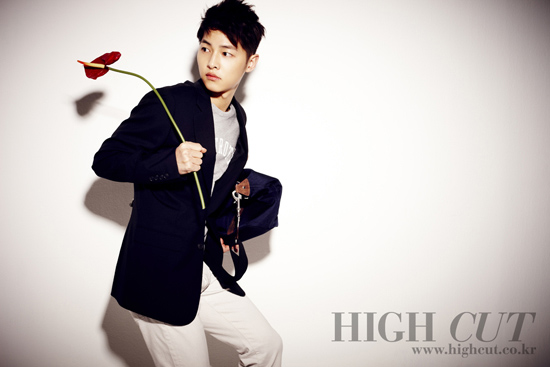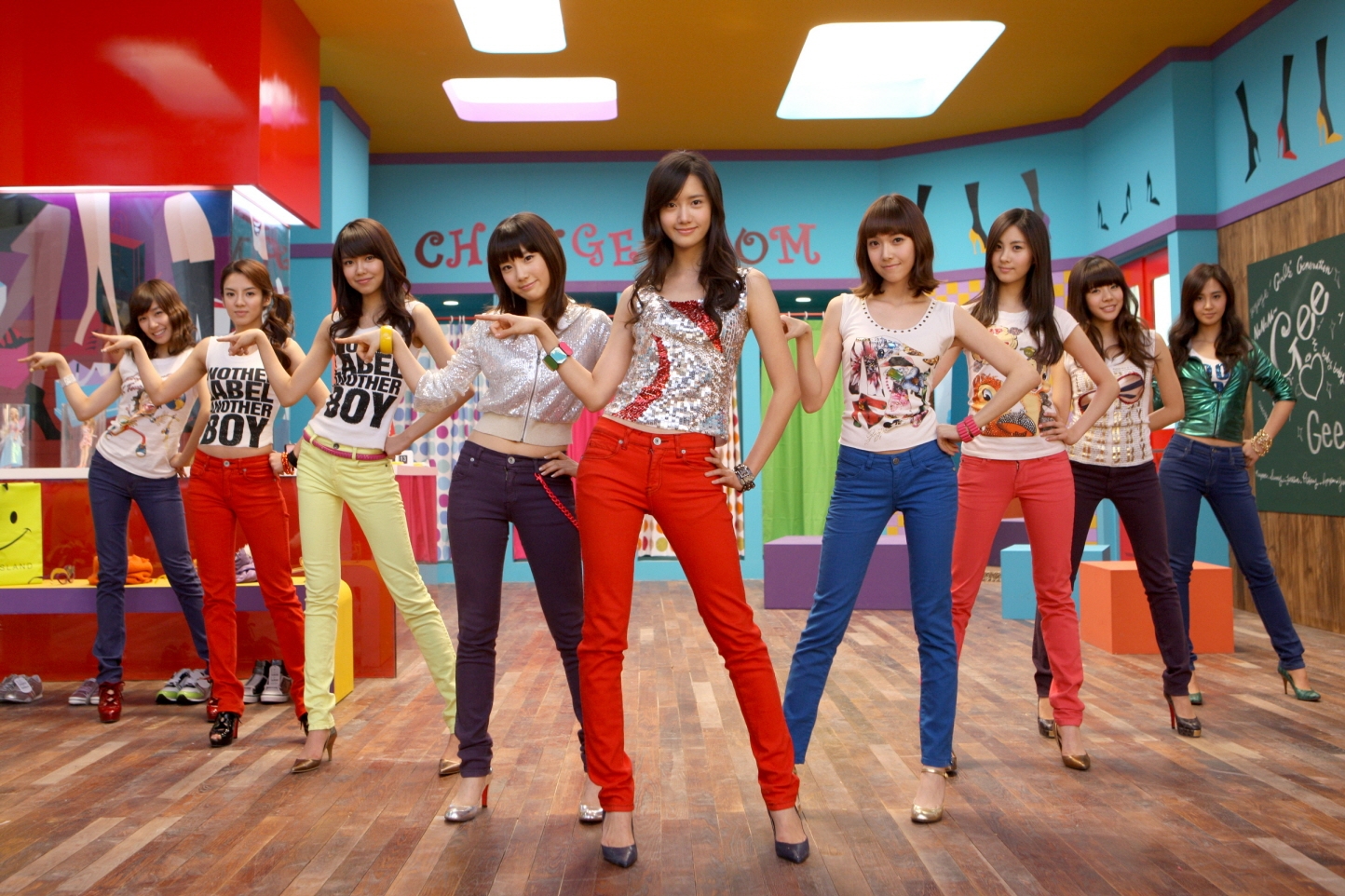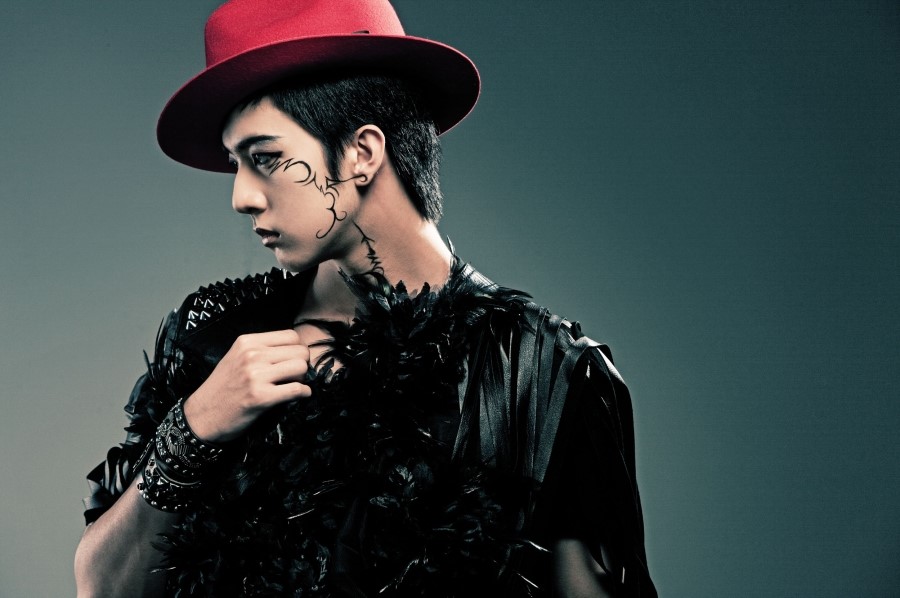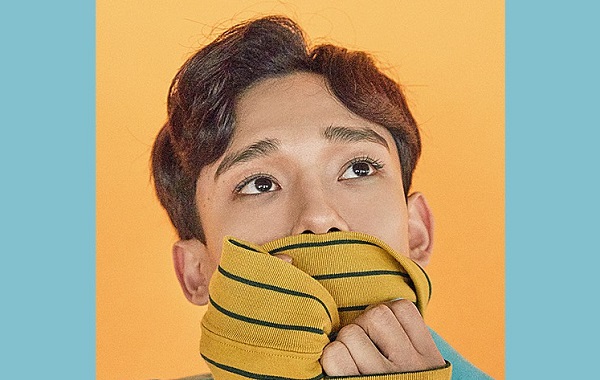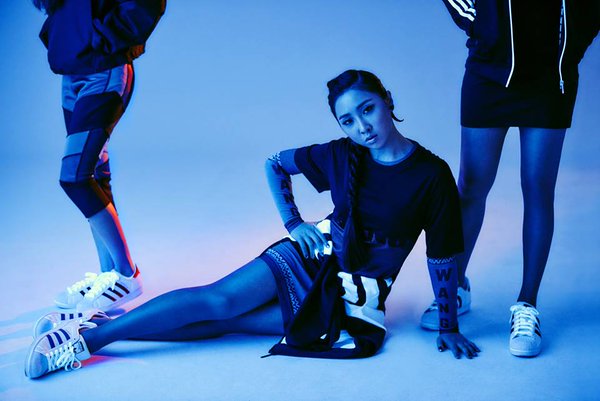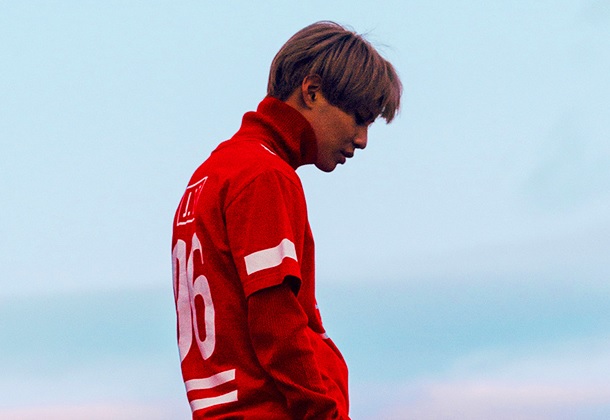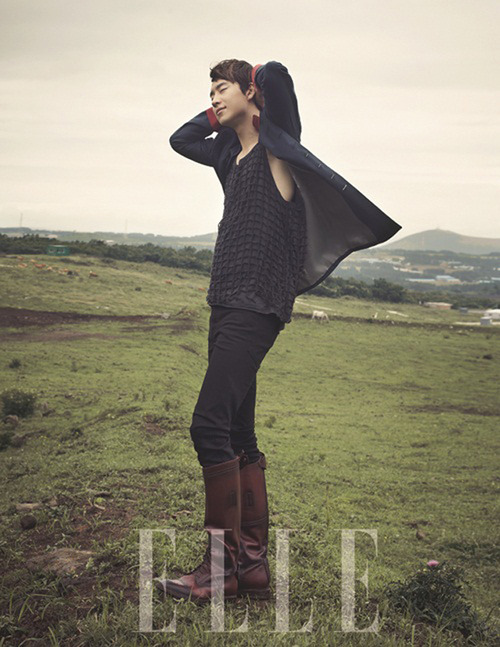 Welcome to another Comments of the Week!
Welcome to another Comments of the Week!
This week in music and idol news, we talked about Gavy NJ & Postmen, G-dragon‘s “That XX”, FIESTAR‘s “Vista”, all of SNSD‘s love, T-ara‘s “Sexy Love” drama and dance versions, XIA‘s concert in New York, stage names, Orange Caramel, recent indie releases, and 24K‘s debut.
For fashion, film and television topics, we looked at Song Joong-ki‘s pictorial for First Look, great OSTs, the best of last week’s music shows, K-dramas and pseudo-homosexuality as well as literal homosexuality, The Chaser, an exchange on idol actors, and additional thoughts on Answer Me 1997.
As for socio-cultural issues, we addressed dolls and cyborgs in K-pop, a writer’s thoughts on why Psy isn’t doing K-pop any favors, and our thoughts on MV reaction videos.
Let’s hear what our “Seoulbeats netizens” had to say:
Sabah on K-dramas and “Pseudo-Homosexuality”: What Gives?:
Back in 2001 there was this British drama called Bob and Rose where a homosexual man, who has been openly gay for a long time and had many relationships suddenly finds himself attracted to a woman. She seems to the the exception and he doesn’t find any other woman attractive, being still attracted to other men. Eventually he marries her and they settle down and have a family. They maintain that he is still gay and hasn’t become bisexual, it’s just that ‘Rose is the exception.’ It’s message was about loving beyond sexuality and gender, love is love in the same vain as Chinese Odyssey 2000 and of course the most famous and maybe earliest Twelfth Night as well as the majority of Korean dramas referenced in the article.
Bob and Rose was written by a homosexual man who had done, is doing, a lot for LGBT portrayals and inclusion in mainstream TV. I only mention his sexuality and history so that it is clear that this story wasn’t a plot device but used intentionally with purpose.
The interesting thing is that there was a huge backlash from the LGBT community. They felt that it belittled them because being LGBT person is about being sexually attracted to the ‘other sex’ to say that being LGBT person just encompasses a ‘love is love’ standard between all people is to simplify it to the point of insulting. They argue that this reasoning leads to a troubling issue of where if love is love, then maybe a ‘homosexual man’ just needs to find that right ‘person’ which might in fact be a ‘woman.’ They argue, ‘no’ because being homosexual means being attracted to men!
Then again there are LGBT people who do not like to have it defined as just sexual gratification. To quote Gore Vidal “There is no such thing as a homosexual or a heterosexual person. There are only homo or heterosexual acts. Most people are a mixture of impulses if not practices.” They contend that this approach is just insulting too because LGBT is about ‘loving’ beyond gender which includes romance, love and a relationship where you love the person beyond being just sexually attracted to them. However I have discussed this with some Lesbian friends that I know who have admitted that even though they hold this viewpoint, if a lesbian friend they knew suddenly married a man and settled down to have a family, BECAUSE she loved him, (seeing beyond gender) and not because of social pressure or trying to hide, BECAUSE like Bob and Rose, ‘he’ was the exception THEY WOULD HATE IT! Which I find perplexing to say the least but just like love is love, feelings overwhelm and sometimes reason is lost to what just feels wrong to individual people.
I only bring this all up to say one thing; you won’t find consensus on the issue from people within the LGBT community because just like any other community there will be differences of opinion. Even if you look towards the issue of whether this will further progress for LBGT rights or even portrayals on TV, then just think back to the furore of the aftermath of Bob and Rose, between the side that do believe in love is love, beyond gender & the side that find that belittling. One side thought Bob and Rose helped awareness whereas one side thought it hindered it.
For me it boils down to intention. Why is pseudo-homosexuality used in dramas? Is it a plot device or merely a means to bring in tension? I can not help but feel that mostly, it is just an evolution of the ‘incest’ plot device that were found in many earlier dramas; a thrilling and ‘novel’ way to bring in conflict to the drama rather than an opportunity to raise awareness. If I find that there is purpose behind it, for instance the propagation of the love is love, beyond gender message as in Bob & Rose, Chinese Odyssey 2000, Hana Kimi or Coffee Prince then I don’t mind it BUT if it is just a plot device to add ‘drama’ then it shouldn’t be used. However that is just my own personal way of looking at things. I hope I did not offend anyone, if so please forgive me, and feel free to enlighten me. Thanks.
Camille on SB Exchange #24: Lights, Camera, Idol!:
The only thing I don’t like about idol actors is that some PD’s are willing to give them lead roles for their drama debuts. Look at my beloved Yunho and Changmin, for example. Sure, they have a massive fanbase, but they sucked in their dramas because of their acting and the fact that the dramas’ plots themselves are crappy. It’s like they intend to just produce an idol drama for the heck of it. Yoochun‘s performance wasn’t that good in Sungkyunkwan Scandal either, yet he gets a pass because the rest of the ensemble cast, plus the writing, were great.
I’d rather see idol actors start with smaller roles and work their way up, just like all the other newbie actors. Their presence in dramas will still rake in their fans, but also give the idols not as much pressure to do well and more room to improve. Heechul actually debuted first as an actor, and has been in popular dramas like Bad Family, Golden Bride, etc. He’s actually not that bad as an actor. Siwon had bit parts, too, before he got cast as the lead in “Oh My Lady.” I see Siwon in dramas in the years to come. I feel like he wants to mold his career after Eric‘s.
If they keep putting in idols in dramas, how is dramaland supposed to find its next Lee Minho, Jung Ilwoo, Kim Soohyun, Yoon Shiyoon, Song Joongki, Jang Geunsuk, etc.? None of them are idols, but were kids specifically trained for acting careers, and were once the random teenagers with bit parts in dramas. There is no current young actor who shot to fame from relative obscurity like Lee Minho did in BOF. The current It boy is Yoo Seungho, who was an extremely popular child actor that’s transitioning so well into adult roles.
CJux on Plastic Fantastic or Robotronic-Loverholic?:
First, props for using appropriately a Baudrillard quote in an article of this nature. Although I don’t think readers who never read anything by Baudrillard before will fully understand it, especially the analogy of the map, I think the article would be incomplete without a reference to the French sociologist.
Allow me to cite so more words of wisdom that I think are relatable to this topic:
“The immense majority of present day photographic, cinematic and television images are thought to bear witness to the world with a naive resemblance and a touching fidelity. We have spontaneous confidence in their realism. We are wrong. They only seem to resemble things, to resemble reality, events, faces. Or rather, they really do conform, but their conformity itself is diabolical.
[diabolical in a sense that it makes the receptors, we, comply with the manufactured images of models and project our own lives accordingly, like puppets, and it’s a vicious system where humans are trapped in this illusionary world created by ads and TV and can’t get out of it. When Baudrillard talked about Wachowskis’ The Matrix, which was fully inspired on his Simulacra and Simulation work, he said he thought they interpreted his book wrong because according to him, Matrix is not a fiction – it’s the reality. We are already living inside it. Well, metaphorically speaking I guess.]
– from “The Evil Demon of Images”
It’s like you said in simpler words: “Instead of having dolls imitating real-life women and constituting a representation of a girl, you’re looking at an object and expect its owner to look alike.”
For me, that defines the whole K-pop package itself. Everything about it is already “Plastic-Fantastic or Robotronic-Loverholic”. The first time I watched Gee I thought “this is bizarre.” It was the first time I saw a video made of several girls, all looking like they came from the same womb, with the same bodies and similar faces, dressed like dolls and singing in similar high-pitched vocals. I later learned that K-pop idols don’t look all the same, but the standardization of K-pop marketing (through MVs and photoshoots) makes them sometimes look like carbon copies of the same artificial human prototype, with no proper ethnic or individual identity. It’s similar to the Barbie phenomenon: it’s presented as a manufactured product that seduces you with its glamorous packages and makes you wanna play with it because it comes with different clothes and hairstyles and concepts and shows and so on.
There’s no real meaning behind idols using the doll concept other than to project themselves through the already manufactured nature of their very corporate-owned existence in a more obvious way. But concepts like these produce very pretty images to look at, and like Baudrillard said, images are very seductive.
[As consumers, we’re both the predators and the victims.]
Kennedy Halstead on What’s In A (Stage) Name?:
I became fascinated by Kpop stage names when I learned that all the members of MBLAQ (except Seungho) has a stage name chosen by Rain. So, it’s kind of like real names, actually: most people don’t choose their own names, their parents or someone else gives them the name – it becomes a very important part of their life, but it really reflects the *namer’s* personality more than the *named*. Like, when Nicolas Cage named his son Kal-El, immediately, everyone knows the father is a big Superman fan. The son may be, too, but only later, and you’ll never know if he likes Superman on his own or because of his dad’s influence or because of his name or a combination of those factors.
When someone takes a stage name, I think a similar thing might occur – Rain gave MBLAQ Lee Joon (real name: Changsun) his stage name, which is apparently derived from his own name (Jihoon). Right there, expectations arise and I’m certain Lee Joon feels the pressure of being “Little Rain”, which has no doubt fueled him to an extent in his career. Would he have worked as hard and as fiercely if he *hadn’t* been given this particular name and the responsibilities it carries? We’ll never know for certain, but it’s an interesting thing to think about.
Of course, my favorite Kpop stage name “what if?” story comes from another MBLAQ member – Cheondoong (also known as Thunder). Cheondoong’s case is just a fascinating existential conundrum for me. See, Cheondoong was never even meant to *be* Cheondoong. A+ and other Kpop fans probably already know this, but Cheondoong actually joined the group 15 days before their debut; he replaced member Sang Bae at the last moment, apparently because Sang Bae had health issues. One thing that struck me when Cheondoong was telling this story of his late membership to MBLAQ on Strong Heart was that Sang Bae was the original owner of the stage name “Cheondoong”, and that because he was meant to debut as a rapper, our present-day Cheondoong also had to do so, even though I suppose he’d felt himself to be more a vocalist.
So really, the Cheondoong fans know and love is essentially living under someone else’s intended name. I mean, he is his own person and all, and he owns that name now, but it’s almost like getting someone else’s engagement ring, isn’t it? It wasn’t originally meant for him.
In fact, during the early days of their debut, Lee Joon would actually ask *on air* what Cheondoong’s name was! I guess because he wasn’t used to the idea of calling him that yet, after having been with the Sang Bae “Cheondoong” for who knows how many years as a trainee.
I always wonder what name Rain would’ve given him if he’d been in the original MBLAQ line-up; would he still be Cheondoong/Thunder? I can’t even imagine him with another stage name, but that’s because it’s so much a part of him now, of our image of him. And of course now, all the MBLAQ members and he himself have assimilated the name. Mir has Thunder’s name saved as “Doo-doongie hyung” in his cell phone apparently, and Cheondoong himself has taken the name to heart so much that he used it to name his cat (Dadoong: combination of his Dara noona’s name and his own stage name).
Yeah, I could go on and on about Kpop stage names, but that was the main story I wanted to share. :) Just something that always fascinated me.
Justin Asomugha on Unpopular Opinion: Psy Isn’t Doing K-pop Any Favors:
I’ve come to the conclusion that the K-pop industry (and possibly K-pop fans) have ridiculous, and somewhat unrealistic, expectations in attaining a large amount of success as an entity outside of the Korean Peninsula.
Granted, I’ve been into K-pop since late 2010 and only heard of Psy when I watched the YG family Strong Heart special earlier this year so I don’t know much about him, but I don’t think it’s fair to make him carry the torch for K-pop across the United States and the rest of the world. His current popularity here only happened by chance. He even stated himself that it was just a quirky video released to his fans only. He probably had no intention of traveling outside of his home country (I’m assuming) to become an overnight sensation.
I watched the “GangNam Style” MV, had an “lol/wtf” moment, and closed the video tab. Psy’s music isn’t my taste personally , but I’m happy he is having his individual moment of success. And I think it should just be that — an individual success, NOT a K-pop one. Any k-pop artist (like many other foreign acts) that wants to debut in the states should showcase what makes them a unique Korean/Asian, and of course articulating yourself in the English language.
I think many K-pop fans need to let go of this fantasy that the “Hallyu” is going to take over the world, when right now it’s still just making splashes across eastern Asia. It’s so difficult for Asian Americans, who were born/raised in the US/Canada and knowledgeable of North American culture, to make it here they have to flock to Korea (eg Ailee, John Park, Jay Park, G.Na, etc) just to have some kind of success. It’s very unlikely that in the near future there will be a miniature army of glittery k-pop robots invading the US, dancing and singing on cue to a generic western-like beat.
Psy’s “GangNam Style” isn’t doing K-pop any favors and it shouldn’t. It’s only a microcosm of the genre many of us have come to (secretly) love. To be honest no one artist should really represent an entire genre of music anyway. There’s too much diversity. Any Asian act that intends on debuting in the Americas or Europe or Africa or Australia should do so on their own terms with their own style, not having to be sent across the world like some ambassador on behalf of their native country.
That’s it for this week! Thanks for being wonderful readers, and as always, feel free to leave additional comments below.
(Images via Cosmopolitan Magazine, Elle Magazine, VMAN Magazine, High Cut Magazine, InStyle Magazine, Harper’s Bazaar Magazine, SM Entertainment, J.Tune Camp, YG Entertainment)
